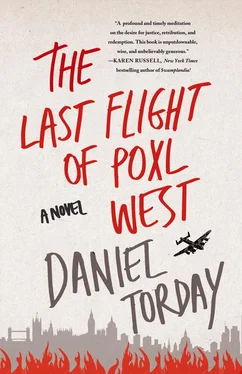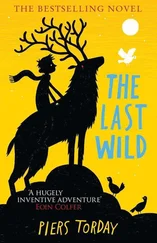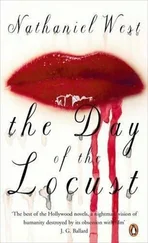“It’s a very particular book,” he said as we neared home. “It’s not for everyone. You know Poxl suffered so many losses — including losing his wife — and some of it can be hard to read. His confessions about Françoise can be hard.”
“It’s a perfect book,” I said. “That reviewer has no idea what he’s talking about. I mean, he couldn’t even put his name to it? Cowardly.”
My father tried to say something more, to explain the magazine’s policy, but I was too distraught from the effect of the review to listen.
When I got back to my room Uncle Poxl’s book was facedown on my bedside table. That book didn’t need to press itself up against the paucity of content of X-Men compendia, Bill James Baseball Abstract, or even the classics of American literature we read in class. I sat down on my bed and touched the back cover, my fingers lingering over Poxl’s face. The back of the book lifted a little on its own, Poxl’s author photo moving from the table toward me almost like one of Shakespeare’s ghosts, with the natural levitation cracking the spine at the acknowledgments page.
1.
I arrived in London after my long trip on the Batavier Line and was admitted to the UK at a port in the small northeastern city of Grimsby. After my first sight of that precious gem set in the silver sea, I arrived in London by train four days since last seeing Françoise. I found my way to the little two-bedroom flat in Bermondsey where Niny lived with her sister.
“Poxl, you’re here! And just after I’ve had the most terrible night,” Niny said.
She approached me at the threshold to her flat as if it was the most natural thing in the world that I was now suddenly in London. She held me tight. Niny was a slight brown variety of cousin. She had a smattering of dark moles across her face that longed to be read like Braille, the most pronounced just above her upper lip. She wore dark-rimmed glasses and a printed linen dress. Her shoulders hunched forward as if she was forever trying to inch closer to you, the hollows of her mole-speckled clavicles grown obscure with shadow.
“You feel very skinny,” Niny said. “Let’s get you a meal.”
Niny favored her left leg as she walked toward the small kitchen in her flat. Her toe was wrapped in tissue soaked through with blood. She saw me eyeing the injury and said, “Oh, I’ve stubbed it trying to get off the train. It’s so dark between the blackout and there being no moon or streetlight.”
Given the effects of my arrival, fatigue, and the comfort of seeing Niny’s face, I’d not noticed the blackout curtains drawn against the evening. The room glowed with soft yellow light sent infinitely back upon itself. Even my cousin Johana’s little ceramic spitz, which I remembered from their home in Leitmeritz, seemed to emit a halo of refracted light.
“Your eyes adjust as much as they can,” Niny said. “In the end you can’t see a thing. Just a dim blue bulb when you reach your station.”
She unwrapped the tissue from her foot to reveal a half inch of flesh lifted off her big toe. The bleeding had stopped, but it was still a mess. I took her into the kitchen and washed it.
“I’m happy to have you here,” she said.
The hand on my shoulder gripped tight. Then, with her toe freshly wrapped, Niny was off to the kitchen, where she prepared Wiener schnitzel as we ate it back home, enough for Johana, too, as well as some cucumber sandwiches with cream cheese on soft white bread. Amid rationing for the war, these were luxuries. I was telling her of my trip from Rotterdam when the jingling of keys signaled Johana’s arrival.
“Well, out with it, then,” she said as soon as she’d settled into her seat at the table. “Let’s hear all about the fun you had in your protected Netherlands while we were here, awaiting the next trauma.”
Johana was a small, ruddy-cheeked woman in her mid-twenties whose husband, Vaclav, had sent her to London with her sister while he stayed in Prague to see to his work at Brüder Weisberg, all with the empty promise that he’d travel to London when he could. Johana and I never got on when we were children. Now here she was in London, an adult. She wiped her hands on her napkin.
“I said out with it, Poxl,” she repeated.
“There are many stories to tell of Holland,” I said. But I didn’t tell any. My cheeks burned with a longing to be alone with Niny. Ugly embroidered pillows covered the threadbare sofas in the flat. In the corner, Johana’s ceramic spitz was looking on at us.
“You are in London now, and you must speak English,” Johana said. “Speak German here and they’ll think you’re a Fifth Columner. Send you off to be interned.”
I hadn’t even noticed I was speaking German. Niny seemed to agree there was some sense in this. So in what English I had I told them of my passage across the North Sea. Then silence ensued. I broke it to inquire after what they knew of my parents and theirs. Niny told me they knew nothing of them.
They hadn’t heard a word in weeks.
2.
The early spring of 1940 found me using every method I could at the Leathersellers College to tan hundreds of pieces of leather. Away from my father I was at once home again — and the farthest I’d ever been from it. In the glowing eggshell light of the model tannery, I stood alone with hide that bore the old Brüder Weisberg death smell. My nose had learned to know death long before my eyes ever did. Bristles poked at my hands as they had back at the factory. Shivers at once pleasant and dour rippled over my skin.
One afternoon in those first days I came upon a newsstand where the front page of the Evening Standard read LOWLANDS TAKEN; ROTTERDAM BOMBED; NETHERLANDS HITLER’S. German troops, the story below it told, had descended on Belgium, Luxembourg, and Holland. Dutch warplanes engaged in dogfights with Luftwaffe planes, which were dropping bombs all over Rotterdam.
I’d missed the invasion by only a matter of weeks.
Now that city lay in ruins, an untold number of its citizens killed.
German troops were parachuting into the streets.
I rushed home, but what was I rushing for? The flat was empty. Nothing I could do at that moment would allow me to undo the decisions I’d made. My first thought was of course that Françoise might be dead — she and all her friends. My second was a flash of Françoise alone in those tulip fields we’d gone to together, playing her mandolin. Where did she think I’d gone? Then my anger at watching her at her work returned. Probably I thought then it was best I’d left. That I’d not been there during the bombings. But if Françoise was dead — some part of me felt that even in leaving Holland, even leaving in such a huff, one day I might be with her again. What had I done? I’d never lost someone so close. Janos Heider committed suicide when we were in sixth form, but my parents hadn’t taken me to the funeral. I’d been to my grandfather’s funeral, but I was too small to remember it.
Neither of them was to me what Françoise was. What had become of the Café le Monde? The Brauns down on Heemraadssingel? The only thing I could do was write a letter. I sat down to draft one — not to Françoise, but to Herr Braun. I asked if they were okay, let them know they were in my thoughts. If Françoise was okay and she wanted to contact me, she would surely learn of this letter and get in touch.
While I was drafting this morbid letter Niny arrived home. She instantly recognized my distress. She put her hand on my shoulder and let me write my letter. Later that evening she came to my room, and I told her of my history with Françoise.
“So easy to fall in love,” Niny said. “You always were. I’m sorry, Poxl.” She seemed to understand the pain I was in. She looked off out the window. It wasn’t yet dark. The blackout curtains were still open. Light slanted in and lifted my mood. “But when you left, you must really have been hurting.”
Читать дальше












